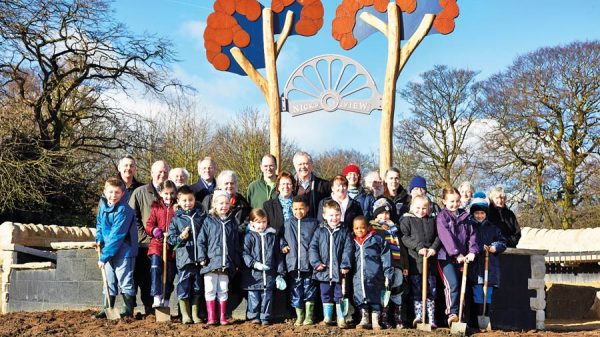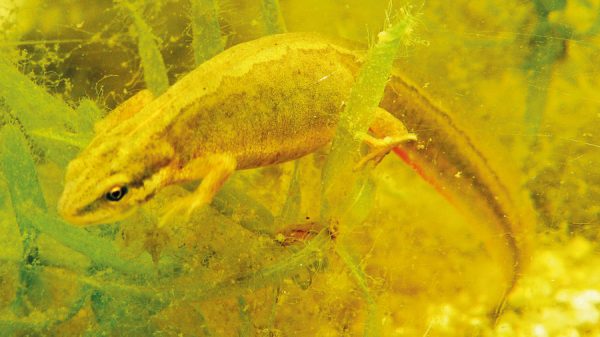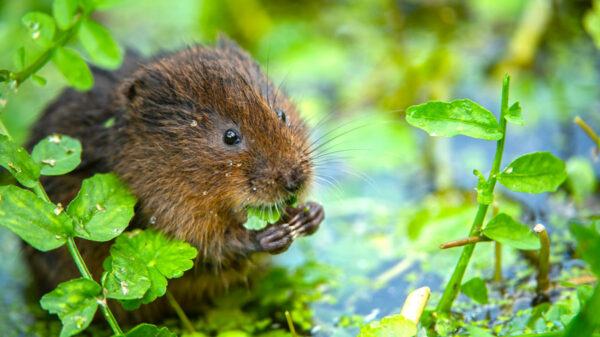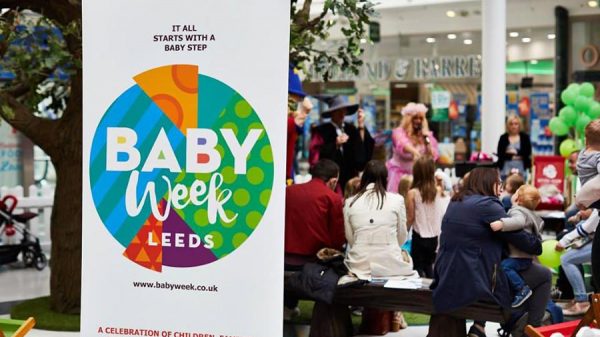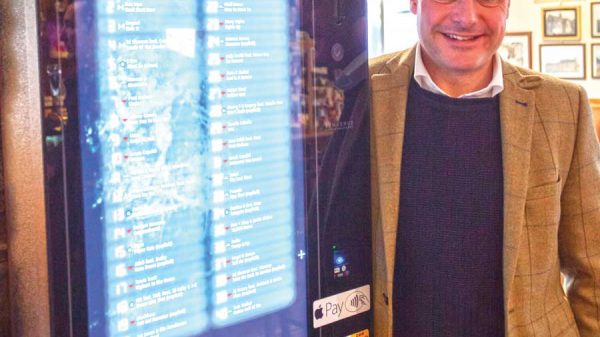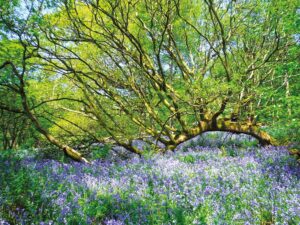The RSPB are encouraging families to celebrate Father’s Day this year by enjoying special time exploring their local RSPB nature reserve and greenspaces
Morwenna Alldis, spokesperson for the RSPB said: “Sunday 19 June is a chance to say a heartfelt ‘Thank You’ to the supportive dads and father figures in our lives, and hopefully this Father’s Day we can give them a physical hug too. Maybe your dad gives the best pep talks, never fails to make you laugh, cooks the biggest and tastiest Sunday roast, or is still the most reliable taxi service in town (even though you’re all grown up). This Father’s Day give him the most precious gift, time spent with his family outdoors in the summer sunshine.
Morwenna continues: “As nature blooms treat your dad to a walk, exploring your nearest RSPB nature reserve and local greenspaces. Nature is bursting with colour and new life in June, look out for bees and butterflies feasting on nectar-rich flowers, adult birds busy gathering food for their hungry fledglings, and lizards basking in the heat. Find your nearest RSPB nature reserve, here: rspb.org.uk/reserves
“Dad will also enjoy coming together with young family to have fun with the RSPB’s free Wild Challenge activities, our Bug Safari and Wild Flower Foray are perfect for this time of year. Find out more at
www.rspb.org.uk/wildchallenge
“The online RSPB shop also sells a range of Father’s Day gifts to continue your discovery of nature together at home – from nature books, to ID guides, clothing, optics, and homes for wildlife to start their own families in too. Visit the RSPB Shop here: rspb.org.uk/shop “
Morwenna describes: “Nature is buzzing with new animal dads this month, desperately grappling with round the clock feeding demands, and overly adventurous feathery, furry, slimy, and scaly juveniles, getting into all sorts of bother.”
Here are the RSPB’s top picks of some of nature’s best, worst, and most embarrassing animal dads:
Most Embarrassing Dad Dresser: Ruff – the flamboyant breeding plumage of this large sandpiper, can’t fail to turn heads. In fact, it’s named after its plumage, thought to resemble the white neck ruffs worn in the Elizabethan period. Ruff breed between May-June and the male’s neck plumage and top of the head tufts can range in colour from black to white, midnight blue, fawn, and ochre, with an orange face. Whilst these jazzy neck feathers are affective at warding off rival males and attracting the eye of a mate, any resulting offspring would most certainly march dad ruff right back to the nest to change into more suitably toned-down attire.
Best Dad Dancer: Mayfly – after shedding the skin of their nymph stage in the water, mayflies only live for a couple of hours and with one purpose – to breed. Clouds of males take to the air at dusk for the performance of their life. They fly forwards and upwards to a height and then let their bodies float down, repeating this yo-yo dance over and over to attract a female. But their love affair is short-lived after the crescendo, the male chivalrously guards his mate, as she flies down to the water, lays her eggs and both parents die.
Most Devoted Dad: Red fox – fox dads dote on their cubs and enjoy actively playing with them. For the first month after the cubs are born the vixen can’t leave the den, she needs to feed her little ones and keep them warm. Fox dad heads out every four-six hours to hunt for his worn out mate. After the cubs are weened, the dog fox brings them food daily up until six months when the cubs are meant to leave the den and learn to forage for themselves. But this adoring dad doesn’t go in for tough love, he buries food near to the den under twigs and leaves, to help teach them how to forage.
Sportiest Dad: Marsh harrier – the largest of the harriers and true acrobats of the air. Watching the male’s sky-dance to win a mate and food-pass to their partner has the nature wow-factor. As the male approaches the nest with food he calls to the female who flies out to meet him. They move into position, the female almost hovering directly under the male, and with incredible timing and skill the male drops the food, just as the female flips over and catches the food upside down in her talons. Gold award for both mum and dad and their aerial gymnastics.
Worst Dad Nest Builder: Turtle dove – their nests are so flimsy, just a small collection of twigs, that if you stand underneath them you can see the eggs through the nest floor. Most turtle doves nest in hedgerows or scrub and prefer thorny plants like hawthorn. Sadly, turtle doves are the UK’s fastest declining bird, threatened with global extinction. Loss of food sources at their breeding sites, loss of suitable winter homes, disease and hunting on migration are among the causes. Find out how you can help, here: operationturtledove.org/
Best Birthing Partner: Male seahorse – did you know that seahorses, along with their relatives the pipefish and sea dragons, are the only male species to get pregnant and give birth? They still need to mate with a female – after a beautiful danceathon together which can last for several days, the female seahorse transfers her eggs carefully into the male’s brood pouch (like a kangaroo pouch), the male then fertilises them with his sperm. After around 20 days the male gives birth in a very dramatic show, jetting out hundreds of tiny baby seahorses from his pouch. Some species can birth over 1000 young at a time. But after the birth it’s job done, the babies have to fend for themselves and if they stick too close to dad they may become a tasty postnatal snack.
Best Singing in the Shower Dad: Nightingale – Christina Rosetti wrote: “Hark! that’s the nightingale, Telling the self-same tale Her song told when this ancient earth was young”. But Rosetti, like many poets before her, was wrong in referring to the singing nightingale as a “she”. It is the males who sing and can boast over 180 different songs in their catalogues. Researchers at Freie Universitat Berlin have discovered that the complexity of the males’ song transmits important info to potential mates, such as his health, where he’s from, and whether he’ll be a hardworking and committed dad.
The RSPB would like to say thanks to all the dads and father figures out there – whatever your place in the animal kingdom. We hope you get to enjoy some special time with you children (small or big) in nature this Father’s Day.
